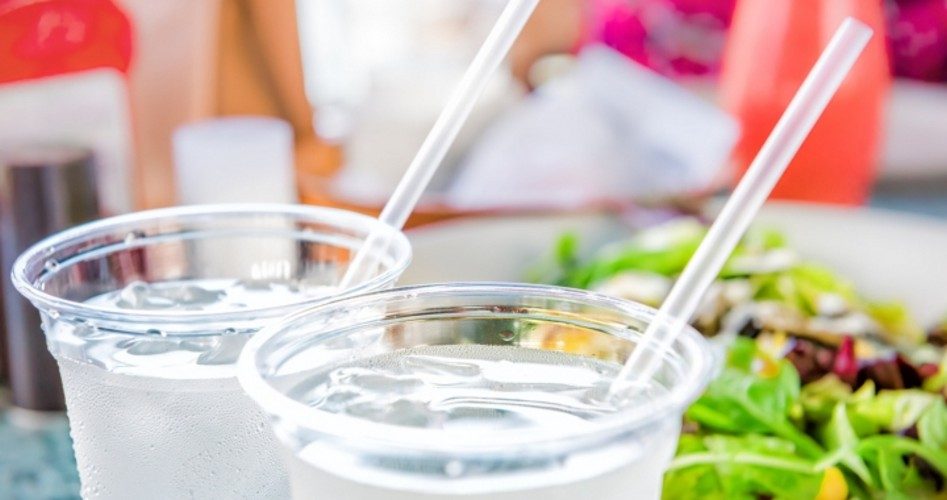
The city of Santa Barbara, California, is taking the anti-plastic straw crusade to new heights of absurdity, mandating hefty fines and even jail time for restaurant and bar owners who dare to supply plastic straws to their customers.
On July 17, the city council passed an ordinance prohibiting restaurants, bars, and other purveyors of prepared foods and beverages, including supermarkets, from giving plastic straws to their customers, even upon request. Such establishments may still provide customers with plastic stirrers and utensils, but only if the server asks if they want these items and customers reply in the affirmative.
Violators of the ordinance, which takes effect next year, will receive a warning upon their first offense. Each subsequent offense carries with it a fine of up to $1,000 — four times the levy imposed by Seattle in its first-in-the-nation straw ban — and a maximum jail sentence of six months. What’s more, “each and every provision” of such prohibited items counts as a separate offense, so the penalties can pile up quickly.
Only one councilman, Randy Rowse, opposed the measure. “For the majority of the council,” reported the Santa Barbara Independent, “the only question was how best to wordsmith the ordinance language to tighten the exemptions.” When Rowse suggested letting people respond to the alleged environmental threat of plastic straws as they see fit, Councilman Jason Dominguez unfurled his totalitarian colors, declaring that “we can’t always count on common sense,” and therefore, “we have to regulate every aspect of people’s lives.”
Most supporters of the plastic-straw ban believe that the straws are a significant contributor to the problem of plastic pollution of the world’s oceans. Councilman Oscar Gutierrez, for instance, likened “plastic’s impact on marine life to that of asbestos and lead paint found drenched in the soil throughout the city’s Eastside,” wrote the Independent.
While plastic pollution of the oceans is a real problem, banning plastic straws, particularly in U.S. cities, isn’t the solution, observed Fox News’ John Stossel. In the first place, most of the plastic in the oceans comes from Asian countries with inadequate waste-disposal systems; the United States only accounts for about one percent of it, and plastic straws make up about 0.02 percent of that tiny amount. Second, the notion that Americans consume 500 million plastic straws per day — the figure always bandied about as the reason for such prohibitions — is bogus, the result of a 10-year-old boy’s telephone survey of straw manufacturers. “The real number,” noted Stossel, “is much lower.”
In addition to stiffer fines and jail time, Santa Barbara’s ordinance is also much more onerous than Seattle’s because it does not include any exemptions for the disabled. Cerebral-palsy sufferer and travel blogger Karin Willison penned:
This ordinance is ridiculous on so many levels, but it’s downright offensive to people with disabilities. Many of us need straws to drink because of limited strength or coordination. Banning straws means we can’t drink in restaurants. We are de facto excluded from any food establishment in Santa Barbara…. To keep any disposable plastic straws on hand, businesses will have to “demonstrate, in writing, a public health and safety requirement or medical necessity to use the product.” I’m sure they’ll all be racing to cut through that red tape.
Willison pointed out that the wording of the ordinance is so broad that it effectively bans the sale of plastic straws in grocery stores, meaning that even if disabled people (or others) want to buy straws to take to restaurants, they’ll have a tough time doing it.
She also wrote that the alternative types of straws suggested by the city council “are among the worst types of straws.” Paper straws, of course, tend to fall apart when they get wet; and, as Stossel reminded readers, they cost more, require more energy to produce, and don’t degrade in landfills.
In short, Santa Barbara’s plastic-straw ban is a measure designed to make politicians and their supporters feel as if they have done something to help the planet when all they have really done is infringe on people’s liberty, increase businesses’ costs, and make life that much harder for the disabled. Unfortunately, more cities — San Francisco being the latest — seem determined to follow suit.
Image: ablokhin via iStock / Getty Images Plus



